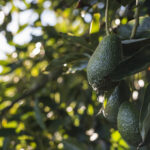Zespri takes hold of Korean kiwifruit market: Chile takes notice
While Chile’s kiwifruit industry has been reluctant to speak out against New Zealand company Zespri’s growing exclusivity with South Korean supermarket chains, industry leaders close to Freshfruitportal.com have confirmed this exclusivity is a deliberate strategy, which cuts off South American competitors.
In 2010 New Zealand-based kiwifruit exporter Zespri obtained an exclusive deal with South Korean supermarket chain E-Mart, who used to source the kiwifruit through an agency, competing on the shelves alongside other international produce.
The recent deal means the chain can deal directly with Zespri and benefit from the associated lower costs, but whether Zespri made the deal on the condition that E-Mart cut off Chilean kiwifruit is yet uncertain; the New Zealand company declined to comment on the matter.
It is a strategy that has been replicated through negotiations with another large South Korean supermarket chain Lotte Mart this year, while industry insiders believe the Asian country’s Tesco chains could be next on the list.
A Zespri spokeswoman said E-Mart had a strong commitment to quality and approached Zespri in 2010 to be its exclusive supplier.
“Given the success of this arrangement, other retail channels have expressed an interest in working with Zespri to provide the best quality kiwifruit to their customers,” she says.
“Zespri is currently exploring a number of these opportunities, but none have been confirmed so it would be premature for us to comment."
But while Chile’s kiwi producers are increasingly losing market opportunities as a result of the trend, the local industry remains focused on improving its internal processes to improve its kiwifruit quality.
Chilean Kiwifruit Committee general manager Carlos Cruzat highlights Chile’s tremendous success in positioning itself globally since the 80’s, with very good marketers and importer perceptions.
“Therefore, Chile’s main competitor is Chile itself. Zespri is a great competitor but we need to focus on ourselves to improve more,” he says.
“We can’t not pay attention to what Zespri does but we have a great internal challenge at the same time as an external challenge.”
NZ-based Turners & Growers development manager Murray Malone explains the extent of this ‘external challenge’ as a clear attempt to block Chilean kiwifruit from the South Korean market.
“We are extremely concerned about the tactics of the New Zealand kiwifruit company, Zespri in its attempts to block Chilean kiwifruit from the lucrative Korean market. Recent moves to secure exclusive supply deals with two of Korea's largest supermarkets have shut out Chilean kiwifruit,” he says.
“This is not because of any issue with price or quality - but rather that Zespri is using a privileged position to tie up exclusive arrangements with customers and take a monopoly position in this market.
“These tactics harm Chilean kiwifruit growers and the wider Chilean economy – if Chilean growers allow such deals to go unchallenged, this could pose a serious threat to open and fair competition in the international kiwifruit industry.”
Alejandro García Huidobro from Chilean kiwifruit company Prize, says Chile needs to raise the level of its industry, recognizing Zespri’s strategy as ‘logical’.
“It’s part of a commercial strategy and we all know the pressure Zespri puts on its clients. It is like when you go to a restaurant and you ask for Coca Cola but they only have Pepsi, because they signed an exclusivity deal with the brands of the bottler,” he says.
“Supermarkets measure their sales by rotation and margin per square meter. Today, the rotation of Zespri kiwifruit in Korea is higher than the rotation of Chilean kiwifruit, and the unit price too.
“If the rotation were the same in supermarkets it would be more attractive to sell Zespri kiwifruit because of the margin the supermarkets are getting. So that gives some logic to what is happening.”
Cruzat sings from the same hymnbook with the Coca Cola-Pepsi analogy, also explaining that the deal might not have occurred just due to exclusivity but also because of quality problems with some Chilean kiwifruit.
He says the Chilean Kiwifruit Committee will take action if it is to find problems in certain markets, wherever they may be.
“There is a generic strategy to position Chilean kiwifruit to the extent that if we feel things are not right in any market, whether it’s Korea or another, we’ll probably have to take action with a formal complaint,” he says.
“What the committee has to do is look after the interests of kiwifruit exporters to whatever part of the world where we feel their commercial development could be affected, and where we believe there are formal arguments to make a defense.”
Photo: www.indesigngroup.co.kr
Source: www.freshfruitportal.com





















































